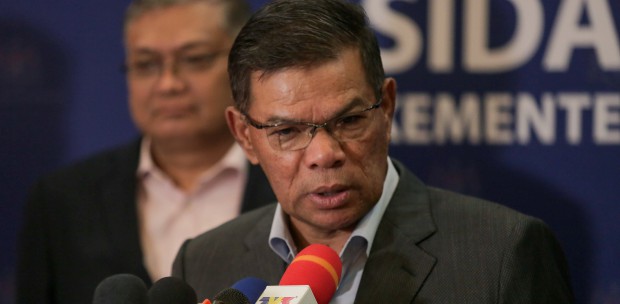WE all grew up with The Tortoise and The Hare fable. In this story, the fleet-footed hare sprinted at the outset only to sleep off midway. Its overconfidence resulted in it losing the race to the doughty but slow-coach tortoise.
Aesop's tale has since been extended. One version has it that the hare, realising its hubris, called for another chance. This time, it sped all the way to victory.
It was the tortoise's turn to call for a rerun. Setting the course to go across the river, the hare could just only watch helplessly upon reaching the bank as the tortoise waded across the river and clambered to the finish line.
Admitting the injustice of an uneven playing field, the tortoise invited the hare to race again. This time, they collaborated. The hare carried the tortoise on its back over land while the tortoise, with the hare on its back, swam across the river. After crossing the river and this time the tortoise on its back, the hare sped to the finish line.
The moral of the story? Collaboration ensures victory to all. In their 2012 book Why Nations Fail, American economists Daron Acemoglu and James A. Robinson argue that good institutions beget national prosperity.
As evidence, they contrast bad governance in Latin America and Sub-Saharan Africa against the good institutions, and consequent bountiful prosperity, in the United States and Europe.
Coordination mechanisms constitute part of good governance in government. For example, the National Security Council and the Border Control Agency coordinate security matters across government.
As with national and border security, inter-agency and inter-state coordination is urgent for several reasons.
FIRST, ministries and even state governments implement related programmes such as poverty eradication, assistance to small- and medium-sized enterprises or rural development.
SECOND, the pandemic has exposed a lack of coordination in data-sharing across levels of government. For example, the Health Ministry previously refused to share detailed data on Covid-19 cases with the Selangor government.
Understandably, this was due to concerns of confidentiality and conflicting interpretations by the federal and state governments on the pandemic. However, better data could have helped Selangor to better target its testing and contact tracing.
THIRD, during the onset of the pandemic, a lack of nationwide coordination resulted in contradictory announcements on the opening of public parks or the aid distribution process.
FOURTH, the public service would be more efficient in delivering public services if it had effectively engaged the private sector and civil society. Civil society organisations responded swiftly to public calls for help, but they ignored government directives to centralise aid and food distribution.
Such cases point to the need for a networked government that allows for strategic collaboration not only within the public sector but across civil society. Here are three strategies to establish such networks.
First, the government should create a central data repository for greater data-sharing across agencies for evidence-based decision-making.
Second, supra-agencies to coordinate the work of related agencies should be created. In Indonesia, for example, a ministry coordinates the work of related ministries in a particular sector, such as economic development or trade. This is to ensure that the government reaps synergies from such coordination.
A similar coordination mechanism could be implemented. Led by a minister with the largest responsibility and stake in a particular programme, the related coalition of ministers would be better able to use resources and strategise effectively.
Third, a culture of collaboration where each agency helps another become the best it can be should be forged across all tiers of government. Such a shift in mindset will strengthen good governance and, accordingly, public service delivery.
Then, like the hare and the tortoise in their last race, all will be winners!
The writer is the Institute of Medicine, Science and Technology University's vice-chancellor
The views expressed in this article are the author's own and do not necessarily reflect those of the New Straits Times





